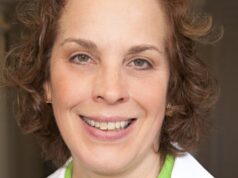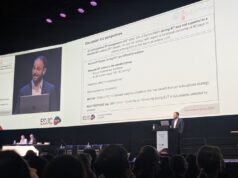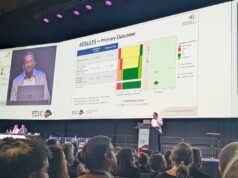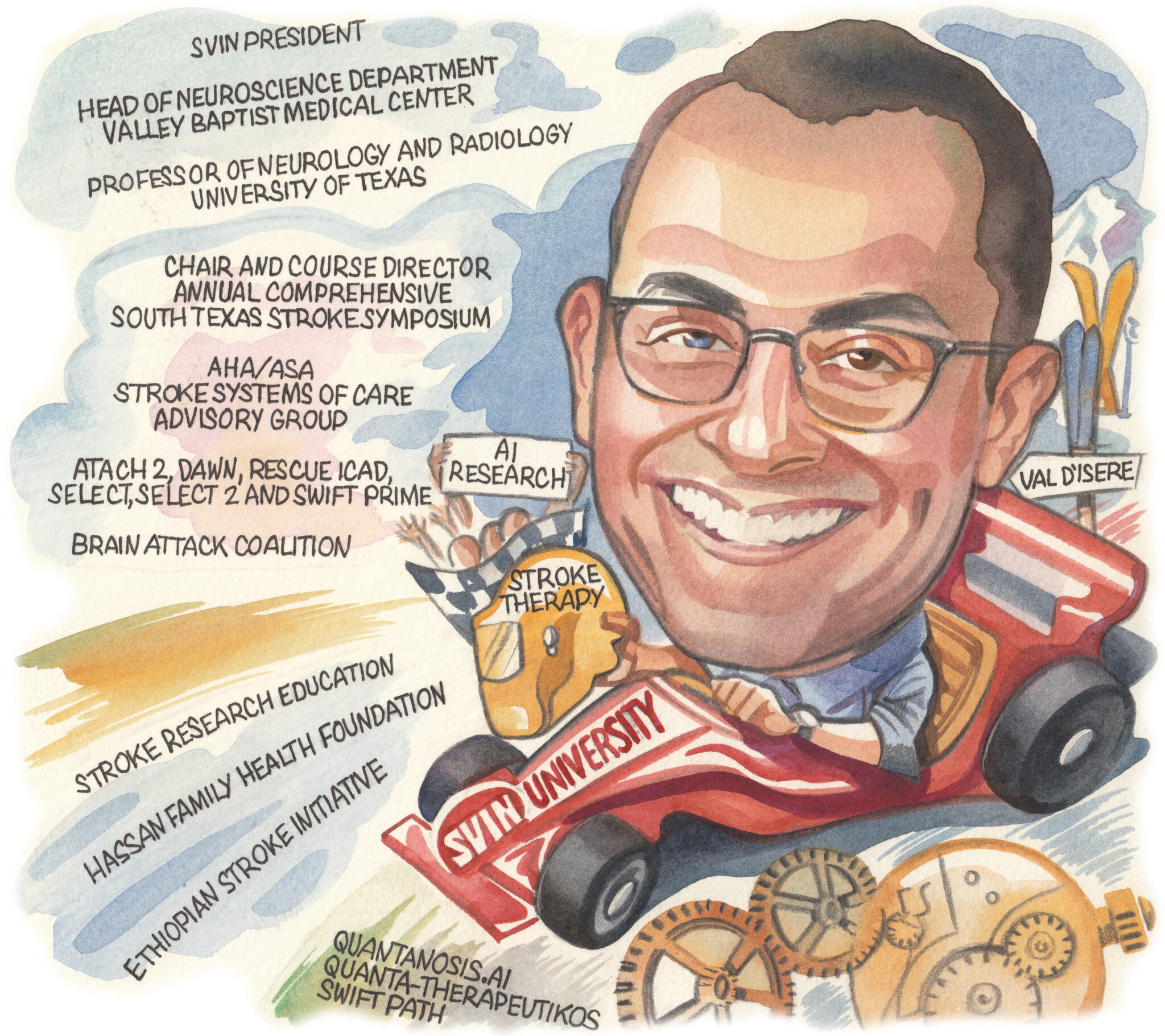
Having initially sought out a career in plastic surgery, Ameer Hassan (Harlingen, USA) switched gears to interventional neurology in 2005—a change of heart he attributes to his “greatest mentor”—and never looked back. In addition to being triple board-certified in neurology, vascular neurology and neuroendovascular surgery, he is head of the Neuroscience Department and director of the Endovascular Surgical Neuroradiology and Clinical Neuroscience Research at Valley Baptist Medical Center, and is currently approaching the end of a two-year stint as president of the Society of Vascular and Interventional Neurology (SVIN). In conversation with NeuroNews, he reflects on his career to date, and assesses ways of improving global access to critical stroke treatments.
What initially drew you to medicine, and the field of neurology specifically?
From a young age, I was naturally drawn to medicine, often wearing a toy stethoscope around my neck even at the age of five. Initially, I had aspirations of becoming a plastic surgeon, influenced by the success of several family members in that field. However, everything changed when I crossed paths with Adnan Qureshi during my time at the University of Medicine and Dentistry of New Jersey (Newark, USA). During a research rotation, he invited me to observe a stroke case and scrub in for the procedure. This was before the US approval of the Merci device, and we were primarily focused on angioplasty and intra-arterial lytics. Witnessing the profound impact the procedure had on the patients and their families—seeing their joy and gratitude—forever changed my life. The experience solidified my passion for interventional neurology, and it was the compassionate and transformative approach that Dr Qureshi embodied that inspired me deeply. It was in that moment that I realised I wanted to dedicate my life to this field.
Who have your mentors been and how have they impacted your career?
My father and mother instilled a strong work ethic in me from a young age, having us start working at the age of 10 during summers and requiring us to contribute to purchasing our first car. This upbringing taught me the value of hard work and financial responsibility. In the field of medicine, my greatest mentor has been Dr Qureshi. Since my days as a medical student, resident, and fellow, I aspired to emulate him. Driven by a passion for innovation and pushing boundaries, his astonishing work ethic served as a constant inspiration. Without his influence, I believe I may have never found my path in this field.
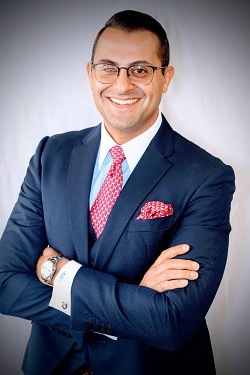
What has your experience been as the SVIN president?
I dedicated substantial efforts to develop a new initiative called SVIN University, which will be presented at the annual meeting in November (16–18 November 2023, Miami, USA). This comprehensive programme will incorporate our existing educational initiatives, such as materials for emergency room nurses, physicians, emergency medical services personnel, and the general public. Additionally, SVIN University will introduce new programmes aimed at educating medical device representatives and engineers. By expanding our educational reach, we aim to foster a well-rounded understanding of neurointerventional practices among various stakeholders in the medical field. I have discussed my tenure as SVIN president in more detail in a presidential address that can be viewed online here.
What do you feel has been the most important development in the field of neurology during your career?
Hands down, mechanical thrombectomy stands out as the most important development in the field of neurology. In the last three decades, no other treatment has exhibited such a remarkably low number needed to treat, nor facilitated the recovery of numerous individuals affected by a life-threatening and debilitating disease. However, there is still much work to be done; hence, the SVIN Mission Thrombectomy initiative is committed to expanding access to this life-saving procedure. Our goal is to raise awareness, advocate for improved resources, reduce disparity, and foster collaboration among medical professionals, and we strive to make thrombectomy a standard treatment option globally. Together, we can continue to advance the frontiers of thrombectomy and create a future where access to this life-saving procedure is no longer a privilege, but a fundamental right for all.
Which technology you are currently involved with excites you the most?
My startup, Quantanosis.AI, is dedicated to leveraging histotripsy/microtripsy technology to revolutionise the treatment of large vessel occlusion (LVO) in the middle cerebral artery. Our mission is to democratise stroke treatment globally. Once we establish the safety and efficacy of this technology in human trials, we anticipate being able to provide treatment for millions of individuals suffering from LVOs worldwide. We are particularly focused on addressing the healthcare challenges faced by low-income and very low-income countries and, as such, we plan on offering our system to hospitals in these regions at significant discounts, enabling them to have unlimited use and expand access to life-saving stroke treatments.
Besides your own work, what is the most interesting piece of neurointerventional research you have seen in the past year?
Without a doubt, my greatest curiosity lies in the potential of neuroprotectants and stem cells in aiding patients who have already suffered significant ischaemic infarcts. If we can enhance their neuroplasticity and facilitate functional recovery, it would address the most significant unmet need in our field and could help revolutionise patient outcomes.
As a fairly active Twitter user, how would you assess the positives and negatives social media brings to the medical field?
In general, the medical field has witnessed numerous cases and the utilisation of various devices without full disclosure. However, I believe that, overall, the etiquette surrounding these practices has significantly improved, leading to the development of a global community. It is remarkable to see how advancements in communication technology have brought together professionals from different parts of the world. For instance, many of my overseas friends, whom I initially connected with on Twitter, now reach out to me for assistance with arteriovenous malformation embolisation or intracranial stenosis cases. They often enquire about our typical setup and approach. With the advent of remote telehealth platforms, we have been able to provide real-time guidance by proctoring and allowing them to observe our live cases. This has been beneficial in educating professionals globally— especially in countries where access to novel devices and techniques may be limited.
Together, we can continue to advance the frontiers of thrombectomy and create a future where access to this life-saving procedure is no longer a privilege, but a fundamental right for all.
Could you outline how you are able to balance your religious commitments with your clinical practice?
I prioritise my religious obligations and integrate them into my daily routine. Successfully balancing my Muslim religious commitments with my busy neurointerventional practice has been achieved through careful time management (scheduling blocks of time for prayer); community and global involvement (via our foundations); open communication (the majority of my patients are catholic); and self-care (fasting has been proved to be healthy and beneficial). By prioritising my faith, establishing a supportive work environment, and nurturing my wellbeing, I have found a sustainable balance that enriches both my professional and spiritual journey.
What advice would you give to those embarking on a career in neurology?
I consistently advise my medical students and residents to pursue their passions rather than chasing fame or fortune. I emphasise the importance of seeking out what truly brings them happiness and envisioning themselves immersed in that field for the next three decades. What I particularly appreciate about our medical specialty is its perpetual innovation and commitment to research. This aspect constantly stimulates our intellect and fuels our dedication to assisting those who require our help.
What are your interests outside of the field of medicine?
I find immense joy in travelling with my beloved family and exploring new destinations—we have seen six of the seven wonders of the world. We have had the privilege of dining at exquisite Michelin Star restaurants, relishing culinary masterpieces around the world. We also enjoy hitting the slopes every year; my daughter learned to ski in Val d’Isère at the age four, when my son was three, while I was attending my first ABC WIN seminar. I am an avid enthusiast of Formula One racing and car shows, where I can immerse myself in the captivating world of speed and automotive engineering, and a passionate collector of watches. My true passion is helping others, as I have started two non-profit organisations. The Hassan Family Health Foundation has established a clinic in my parents’ hometown in Egypt, providing healthcare services to those in need. Moreover, my wife and I founded the Stroke Research and Education Foundation, aiming to expand stroke education in the Rio Grande Valley, empowering the community with vital knowledge.
Fact file
Current appointments:
- Head of Neuroscience Department; director of Endovascular Surgical Neuroradiology and Clinical Neuroscience Research, Valley Baptist Neuroscience Institute
- Professor of Neurology, University of Texas Rio Grande Valley School of Medicine, Edinburg, USA
- Professor of Radiology, University of Texas Health Science Center at San Antonio, San Antonio, USA
Education:
- 2012: Fellow in Endovascular Surgical Neuroradiology, University of Minnesota/Fairview Hospital and Hennepin County Medical Center, Minneapolis, USA
- 2010: Fellow in Stroke and Neurocritical Care, University of Minnesota/Fairview Hospital
- 2009: Resident in Neurology, University of Medicine and Dentistry of New Jersey
- 2006: Intern in Internal Medicine, University of Medicine and Dentistry of New Jersey
Honours (selected):
- 2021–2023: President, Society of Vascular and Interventional Neurology (SVIN)
- 2019: Distinguished Service Award at the SVIN Annual Meeting
- 2017: Valley Baptist Physician of the Year
- 2015: Fellow of the American Heart Association
- 2012: American Academy of Neurology Institute’s Annual Meeting Award

